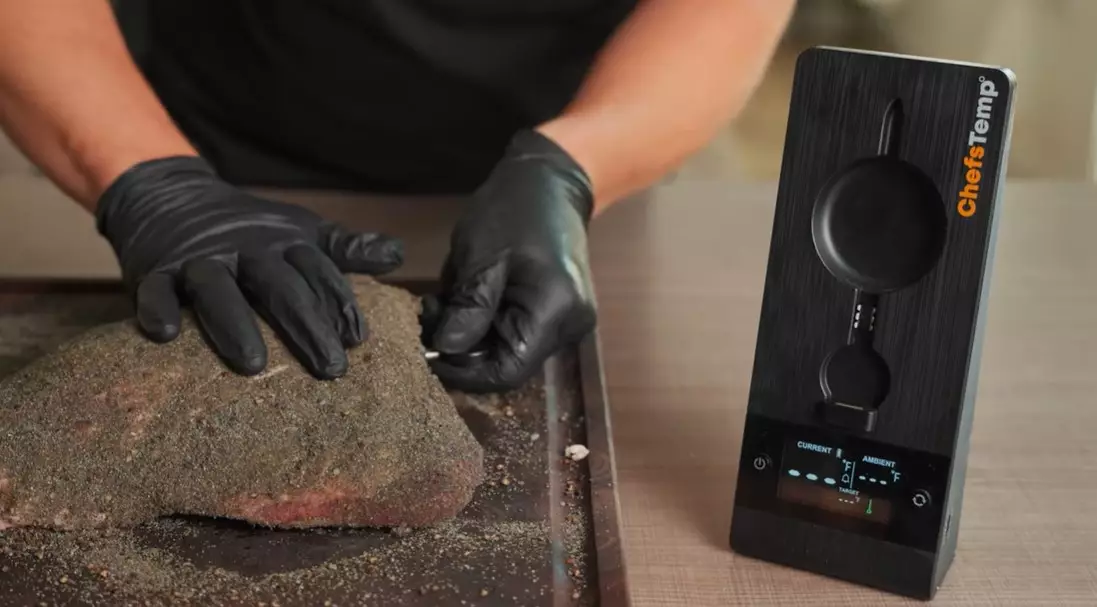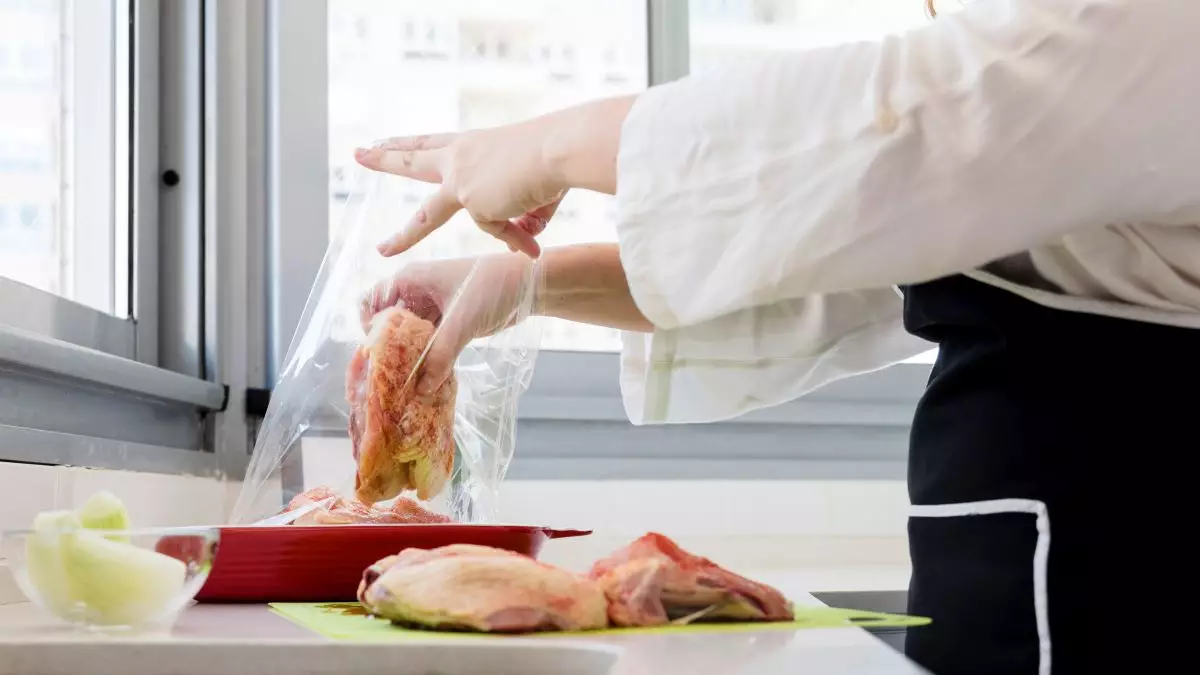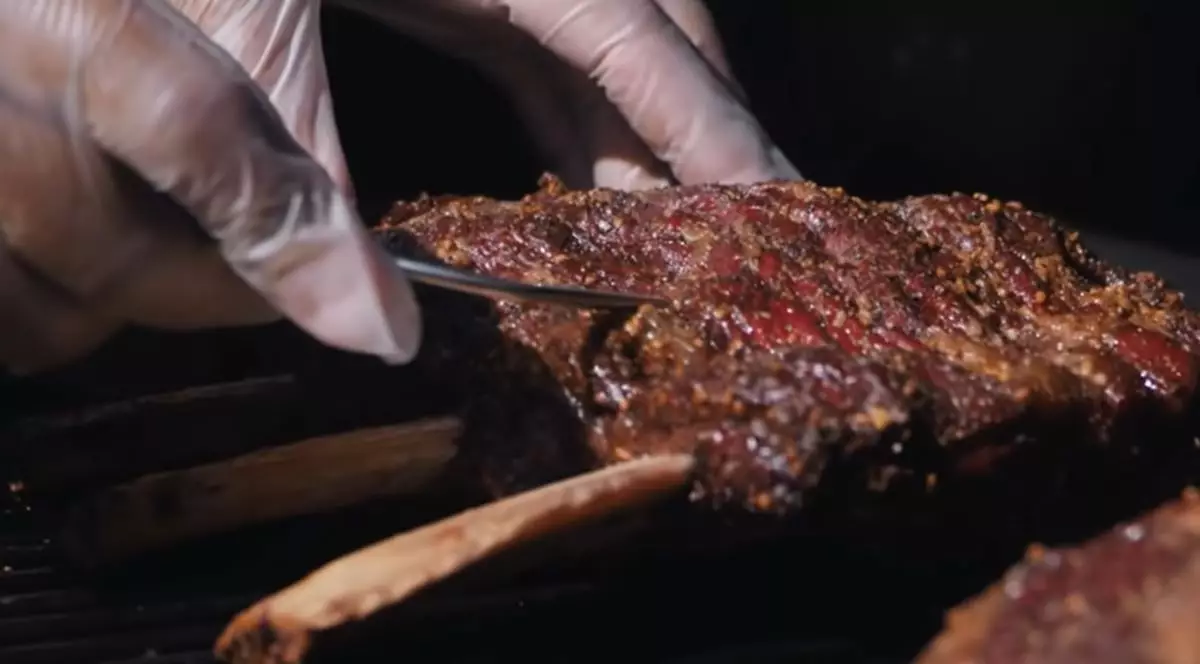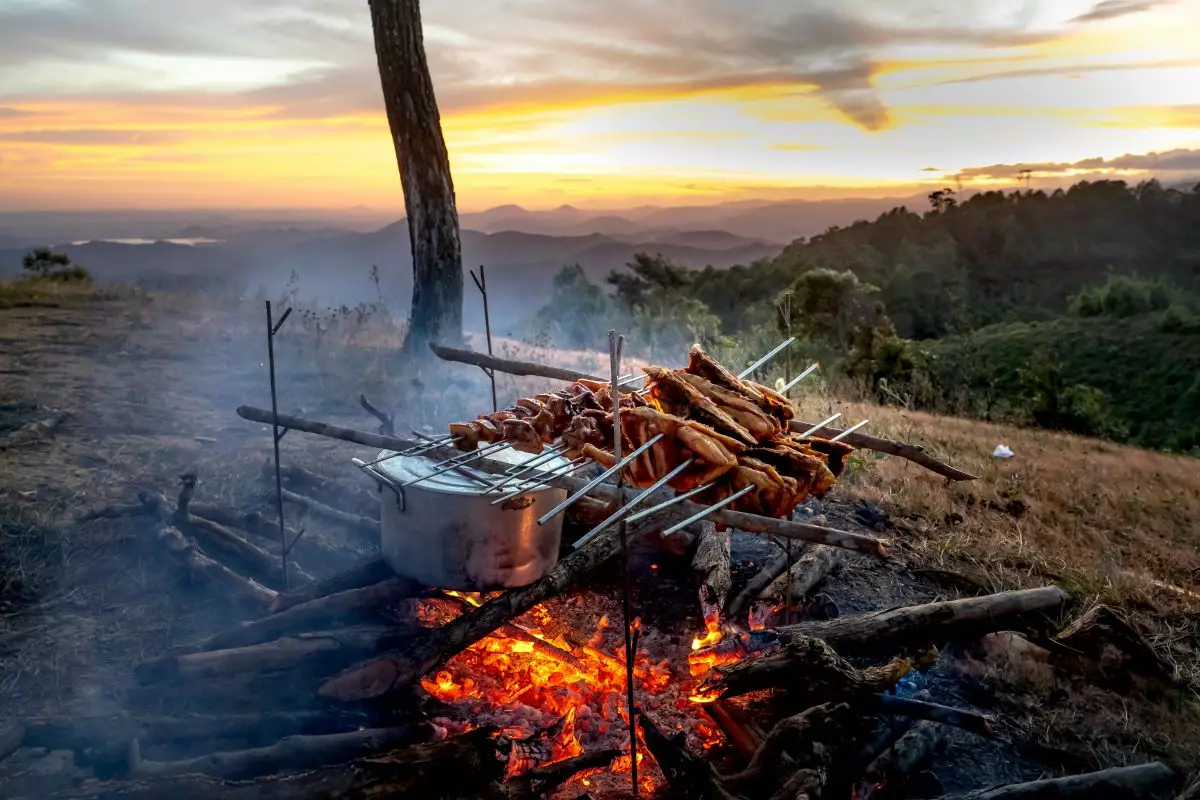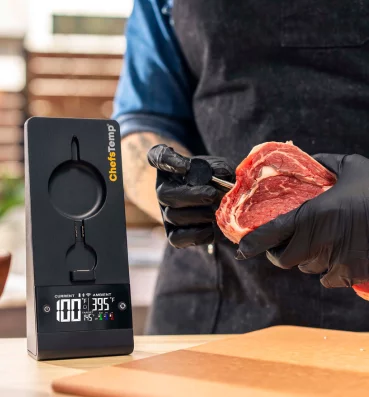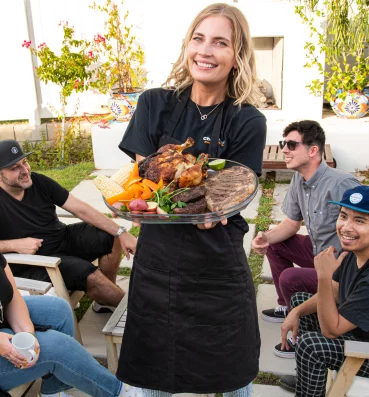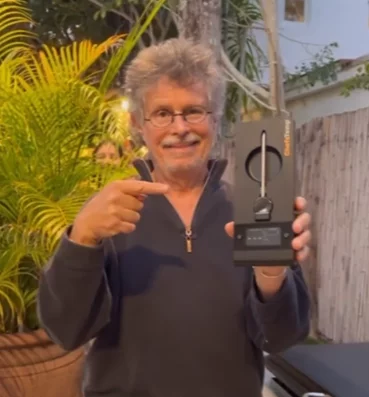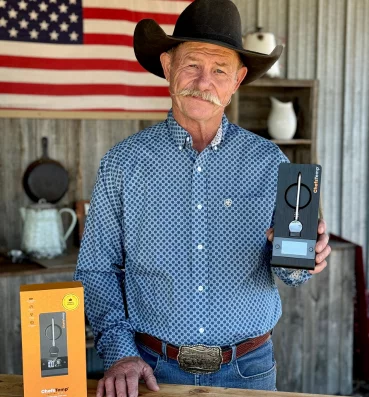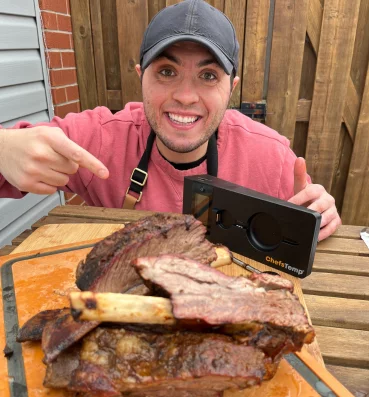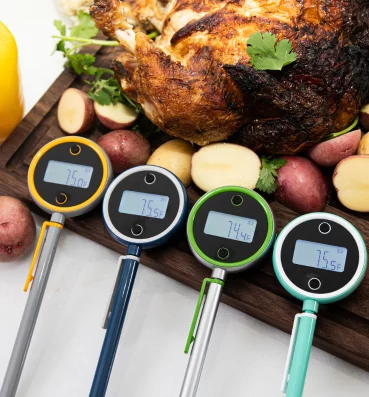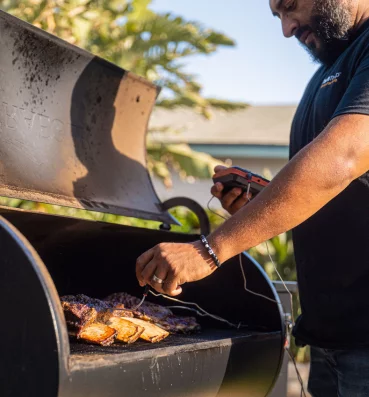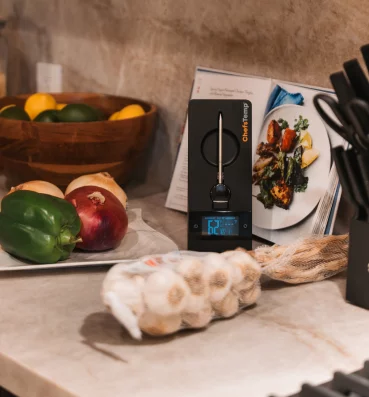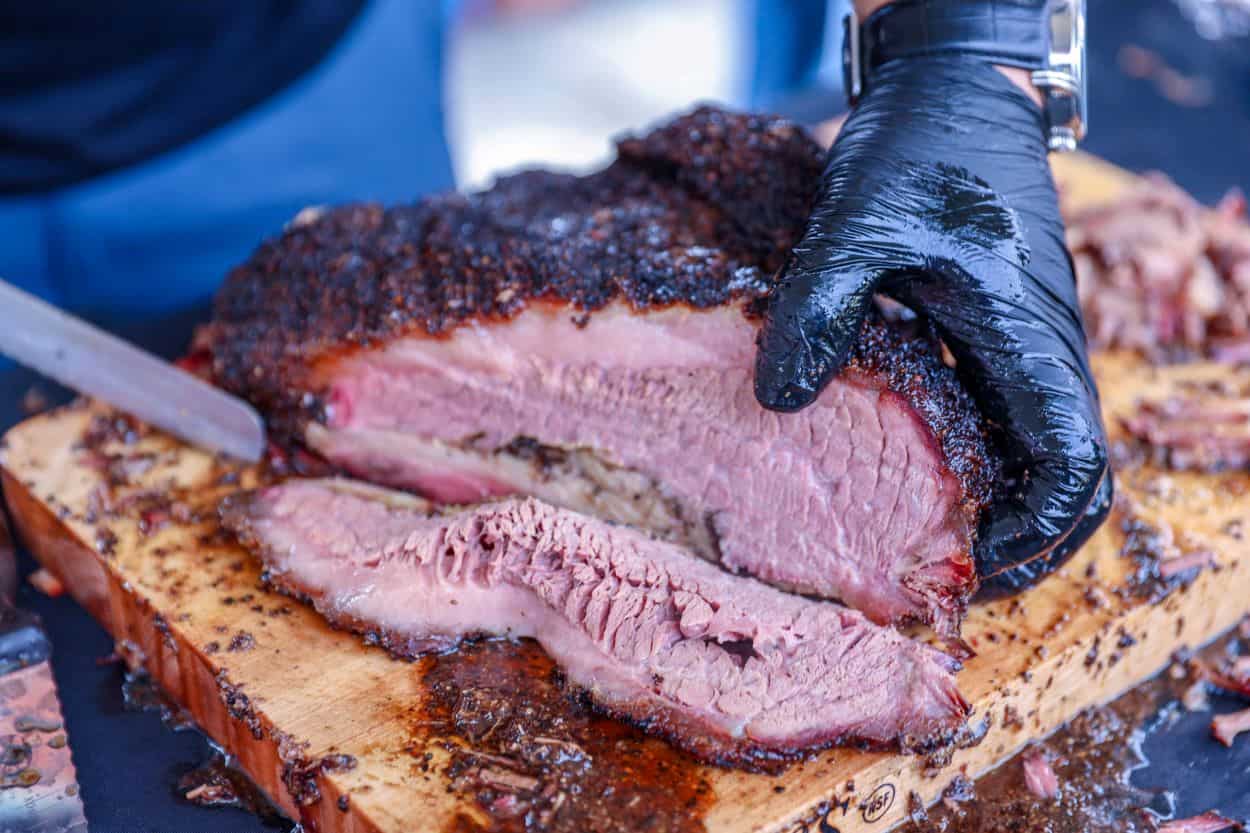
Cooking the Best Brisket with the BBQ Thermometer
Cooking a juicy and flavorful brisket takes some practice. As a beginner, make sure you have a reliable BBQ thermometer. In addition, choose the best quality briskets to ensure safety for your family and guests. Once you are all set, grab a few tips from top chefs to begin your learning journey. One of the tips you will learn from experienced chefs is the importance of checking the internal temperature of the meat with an electronic meat thermometer.
That is the only way to prevent overcooking or undercooking your meat. It is also the best way to serve quality meat. By probing your brisket accurately, you can pull it from the grill when it is ready. We will tell you all you need to know about probing your briskets and serving them when well done.
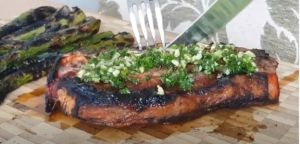
Table of Contents
Where to insert your BBQ thermometer probe in briskets?
If you want to check the internal temperature of a brisket, insert the smoker thermometer probe in the middle of the thickest area. This area has more fat and connective tissue than other areas. How you hold your gadget can affect the accuracy of temperature readings. Insert it horizontally rather than vertically. Make sure you insert your instant read thermometer from the side rather than from the top. If you plan to barbecue briskets regularly, get familiar with some terms.
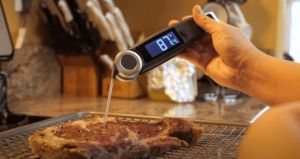
For instance, learn where the point and the flat areas are on a cut of meat. The flat area is thinner than the point area. To check the internal temperature, insert the probe in the thickest part of the flat. The flat will be near the point, and it is the correct place to insert your meat thermometer. There are contradictory views on which part cooks faster than the other between flat and point. However, we would advise you to probe the fattest part of the flat.
Note that the correct temperature range for maximum doneness ranges between 180°F(82°C) and 205°F(96°C). You can pick your target temperature within this range based on the level of doneness you want to reach.
Checking the temperature of the brisket
Now you know where to probe the brisket. Next, you should learn when the temperature of meat stops rising. The correct term from the chefs is stall. The stall temperature will occur at around 150°F(66°C) to 155°F(68°C).
When it hits that temperature range, the brisket will begin to sweat. As it sweats, the evaporation process will take place to ensure cooling. During the stall period, you should stay calm and avoid increasing the cooker temperature.
Once it ends, the temperatures will begin rising again. Use your best food thermometer to know when the temperature hits 150°F(66°C). Once you read that, pull the meat from the cooker and wrap it. You can use butcher paper to wrap it. Close the grill lid to prevent heat from dissipating.
Insert the grill thermometer probe into the meat, return it to the grate, and let it cook until it reaches your target temp of 203°F(95°C). To get a crusty texture, remove the wrap and cook the brisket for half of an hour.
How to minimize your chances of failure?
As hinted earlier, preparing perfect briskets requires patience and practice. However, if you have a good recipe to follow and the correct tools for probing, you can increase your odds of success. Your best BBQ thermometer is your priority when cooking a brisket. Second, you need to know how to use a meat thermometer to ensure it helps you. We have explained how to do that above. If you do not have a thermometer for cooking meat, you will benefit from buying one. The selections you have are:
- Thermocouple thermometers– They can read the internal temperature of meat very fast. However, they do not withstand heat, and you cannot leave them inserted in meat when cooking.
- Digital instant-read thermometers – An instant read meat thermometerproduces readings very fast. They make better choices because they are cheaper.
- Leave-in thermometers– These probe thermometers are the ultimate choice for smoking meat. You can insert them in meat and leave them alone as they can tolerate the heat. Some of the best leave-in gadgets are waterproof and wireless. They can produce a reading in 2 to 3 seconds. The best meat thermometer will not rust or stain easily. It works faster than any leave-in dial thermometer.A more advanced digital leave-in gadget allows you to track the point and flat areas of the cut at once. Its separate sensors can read the internal temperature of meat and check the pit temps too. It has a receiver that allows remote temperature tracking. One probe clips on the grill grate surface while the other probe penetrates the thickest part of the brisket to check the internal temperature.
…
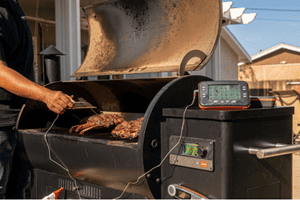
You can set the alarm of your remote thermometer to get a warning when the cooker temperature gets too low or too high and when the time to remove and wrap your brisket comes. With this thermometer, you can keep the grill lid closed when cooking and still monitor the temperatures of food.
Is your brisket done?
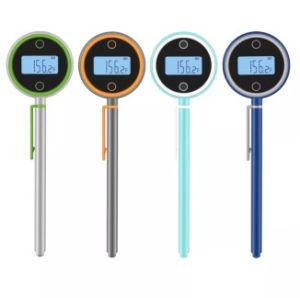
A brisket that has cooked well is easy to tell. First, you need to use a BBQ thermometer to ensure accuracy. After that, pull the meat apart to check how flexible it is. If it is ready for serving, the brisket will have a perfect texture and the best level of toughness. If you insert a fork into the brisket and pull out some meat, you have done a good job. If your brisket is easy to chew, serve it with anything else you please. From the start to the end, you will spend about one and half hours cooking a pound of brisket.
Time may vary based on the denseness of the cut and the amount of collagen it has. However, the most vital thing to ensure is that your beef brisket reaches the safest internal temperature. Check the temperature on the flat and point areas when your digital food thermometer reads 185°F(85°C). If your meat is tender, the gadget will slide in and out without much effort.
If you feel some resistance, keep cooking your meat and monitor it again every forty-five minutes. If you prefer cooking at around 275°F(135°C) to 330°F(166°C), your brisket will reach its doneness level at around 203°F(95°C) to 205°F(96°C). Consider carryover cooking when setting your target temperatures to ensure you remove your meat from heat about 5°F(-15°C) before.
Conclusion
Even if you are not a top chef, you can cook a perfect brisket if you know where to insert the probe. Identify the flat and point on the cut of meat and insert the probe in the former. Then, let your brisket cook as you monitor it every forty-five minutes to prevent heat loss from the grill. Keep your BBQ thermometer safe until you smoke a brisket again.
Discover Other ChefsTemp Products
Discover more recipes and learn kitchen tricks by joining our cooking family on Facebook.
You may also like:
